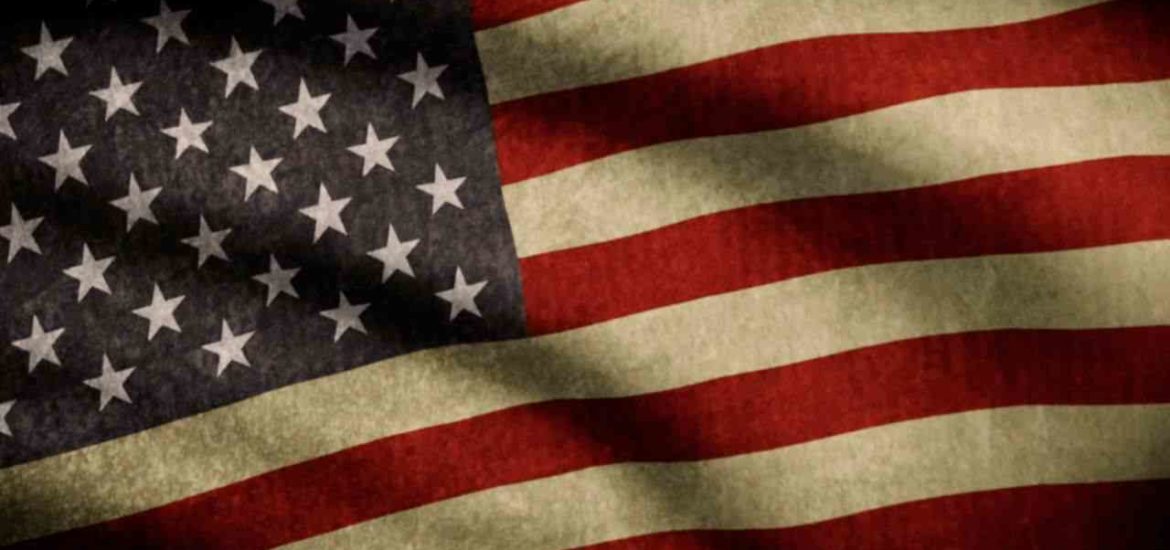“America First” is a slogan that goes back to at least the early twentieth century. It made itself popular in the American culture just ahead of the Second World War, when the “America First Committee” was formed to oppose America’s intervention in that global conflict and to encourage the United States to retain its neutrality. Future Presidents such as John F. Kennedy and Gerald Ford even supported and contributed to the America First committee. As a young man, William F. Buckley, Jr., who went on to found National Review and bring together the conservative movement in America, was also a member. That all changed when Pearl Harbor was attacked on December 7, 1941. Within three days, the America First Committee was dissolved as the public mood changed quickly.
Through this day, there remain charges that the America First Committee and those calling themselves by that name were anti-Semitic and pro-fascist, but I would argue those were very small elements of this group. Yet, they probably did exist.
Since then, the “America First” mantra has re-emerged from time to time. After all, what patriot doesn’t want to put America first? Many “America First” nationalists simply want policies that do not force America to get entangled into alliances with other foreign powers, as George Washington once warned against. Others hold very restrictionist views on immigration and even on trade.
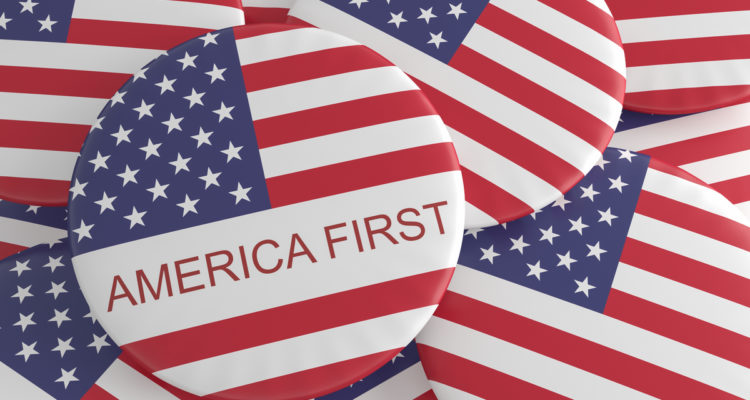
While most “America First” patriots are good, freedom-loving Americans, the “America First” slogan also continues to be used by those with even more sinister interests. And once again, while “America First” has been used by many Trump supporters, there is a growing white identity politics in this country that is now trying to co-opt the term towards white supremacist and anti-Semitic ends.
Up until a month ago, I would not have believed it if you told me what I am about to tell you. But now I believe it: there is a rise in white nationalism, white supremacist ideology, anti-Semitism, and whatever else you want to label it, perhaps the “alt-Right.” And, what’s crazier than that: it’s mostly attracting 18-to-22-year old college-age students. In other words, these are all people born in the late 1990s or after.
Most of them have a similar profile: almost all are male, many are skinny, some have beards, many are unkept in their appearance, they often lack girlfriends; they are typically lonely and alienated, and yet, thanks to the internet and social media, they are able to find “community” online with others who might hold these fringe views. For lack of a more politically correct way of putting it, they might be described as lonely, isolated, weirdos. But the internet provides comfort for their isolation. And now, they are meeting in person and congregating at real-life events.
The center of their anger (and they are angry) is focused on those who they blame for taking away their American dream: mostly immigrants and Jews, and pretty much anyone else who is not “white.”
On November 4, the organization I work for, National Review Institute, partnered with two conservative student groups at Texas A&M University to bring together Jonah Goldberg and Congressman Dan Crenshaw. There were about 600 people in the audience. Most of the audience was there to hear a fascinating conversation between these two conservative men about the rise of socialism in America and what we can do to help young people come to the more conservative, free-market side of the equation. I would estimate most of the audience was conservative, but plenty were not.
The most surprising thing to me was that there were at least about a half dozen college-age students who were part of an alt-right fringe. They asked very loaded racist and anti-Semitic questions. They tried to be “clever” with their questions, to see if they could get one of the speakers to sort of “go along” with their racist, anti-Semitic ways. They film the speakers with their little smart phones. If the speaker says something that agrees with them, they can then show the internet that their voice has credibility among some of the established conservative intellectuals. If the speakers disagree with them or say something they don’t like, they then fire up the same video online to “call out” those speakers for not being true conservatives. It’s a game. And these young people, when they are not trolling on twitter or showing up to events like these, they are probably gamers playing in their parents’ basements.
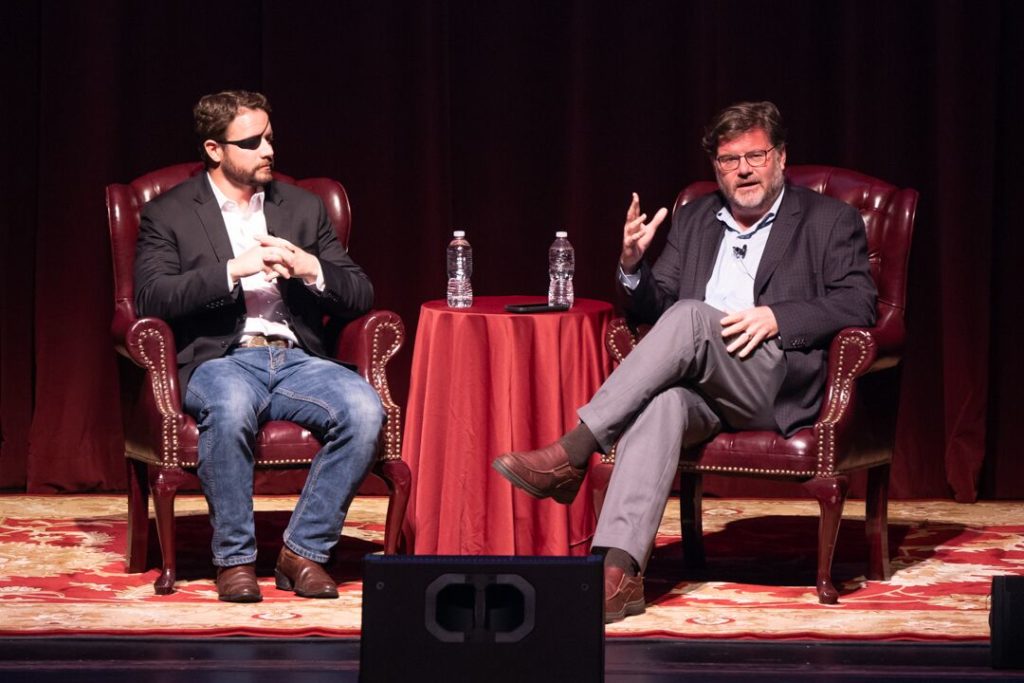
Luckily, most of us are already on to them. Jonah Goldberg and Dan Crenshaw did not take their bait. In the interest of free speech, anyone is welcome to these kinds of events and are free to get in line for the Q&A session. But the speakers are also free to give them an answer they may not like, or simply not buy into their premise. Most of the audience at Texas A&M became quite unsettled at the questions being asked. One donor to my organization, who graduated from Texas A&M a few decades ago, wrote to me that she was “ashamed” that students at her alma mater would even hold these views in the year 2019. Well, her response, and those of almost everyone else in the room, showed me that these sorts of ideas are not welcome in the America of 2019. You may not be able to get rid of racism or anti-Semitism altogether, but you can shame the hell out of it.
When event organizers were taking pictures of these alt-right students while they were asking questions, some of the members of their little tribe became unsettled and verbally attacked one of those people after the event asking why their photos were being taken. Luckily, there was security on hand to protect everyone and quiet down the situation. The reason they don’t want their picture being taken is because they are afraid of being “outed.” They congregate on twitter under anonymous names and with cartoon-style pictures. They hide behind a curtain. Well, that’s what I thought when I left Texas A&M.
The very next week, on November 12, I attended an event at the University of Florida featuring Charlie Kirk, founder and president of Turning Point USA. Over the last seven years, I have personally witnessed the rise of both Kirk and TPUSA. They have had phenomenal growth and I can’t go anywhere without meeting students or donors who are connected to them. They have had so much influence that they have become a favorite organization of President Donald Trump, who has hosted TPUSA activists at the White House on numerous occasions, including during their recent Black Leadership Summit. The President’s son, Donald Trump Jr., has even become a donor to TPUSA, naming an area at their headquarters in Phoenix. [In full disclosure, I am also a member of TPUSA’s Advisory Council].
In April 2018, I attended one of Charlie Kirk’s speaking engagements at the University of Central Florida in Orlando. I was very impressed with his outline of conservative principles, his disposition, his willingness to have an open microphone, and engage members of the audience in an effort to meet them where they are and persuade them to his side. On that particular night, while most of the audience were fans of Kirk and TPUSA, most of the questions came from those on the Left, who disagreed with many of his conservative views. I was expecting much the same when I went to his event at the University of Florida on November 12. However, after reading about the alt-right’s attacks on conservative speakers and given what I just experienced at Texas A&M, I also now expected to see some of these alt-right people show up. I had no idea what I was actually walking into.
Kirk spoke to a packed hall of over 400 students at the University of Florida’s beautiful University Auditorium. It looks almost like a chapel, with a big organ behind the stage. When the time came for questions, nearly 100 people lined up – and almost all of them were these alt-right activists. They were almost all young white men, but this time there were also one or two females.
Kirk took questions for nearly an hour, with Graham Allen joining him as part of the evening’s discussion. All but two of the 20+ questions were from the alt-right activists. Almost every question was about immigration. It was kind of getting exhausting because they all sounded the same. The young men come up to the microphone and read a question from their phone; it’s usually long. There are details. They came to play. Charlie then answers it. It doesn’t satisfy them. They get angry. They boo. The line of people behind them gets angrier. Their body language shows higher and higher levels of anxiety. One young man, 10 people deep back in line, starts yelling. It’s getting intense.
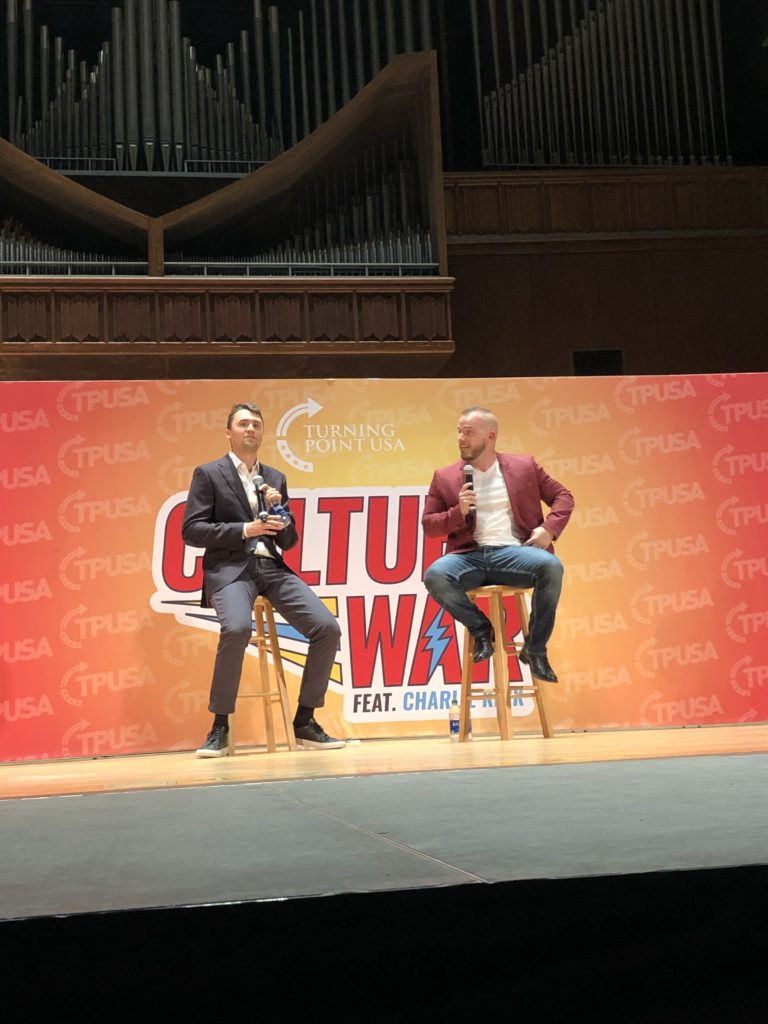
speaking at the University of Florida
Then, there’s a new question. It’s about Israel. Oh great, at least we get to hear a new question. But they hate Israel. They hate Jews. They want to “tap into” the idea that Charlie likes to espouse: that America should end our endless wars. This sounds a little closer to that original concept of the America First idea. But then, their question is loaded with lots of anti-Semitism.
One student, wearing a MAGA hat, claims how upset he is that the Republican Party has “sold out” to “Jewish donors.” Charlie fights back: If that were the case, why didn’t George W. Bush, or George H.W. Bush, or Ronald Reagan move the U.S. embassy to Jerusalem? He continues to also make the case that Donald Trump, a billionaire, didn’t need any donors to win the White House. He made a campaign promise, early on, that he would move the U.S. embassy to Jerusalem. And, he did. And Charlie tells them he supports that decision. Most of the crowd cheers Kirk on here, but then there are a lot of boos coming from the back and from the lines.
I should pivot here to tell you something that happened early on when Charlie Kirk first took the stage and opened up his speech. He talked about some of the things that TPUSA believes in: that America is the greatest country in the world, that the Constitution is the greatest document ever put together by human beings, that our rights come from God, not government, and that we believe in a Judeo-Christian foundation. That last part got booed. When I first heard the boos, I thought those were Leftists booing the idea of the religious foundation of America. I was wrong. It was the alt-right activists. They were booing the “Judeo” part of Charlie’s insistence that our nation was built on Judeo-Christian foundations. When I came to this realization, I couldn’t believe it. There were a lot of boos – about 25% of the place booed that. It’s one thing to disagree with America’s foreign policy being entangled with Israel. It’s quite another to simply not like that fact because one does not like Jews and doesn’t want to believe that Americans should have any kind of association with Judaism.
There were also three more surprises during question time. One guy came up to the microphone wearing a Bernie Sanders 2020 t-shirt and a yarmulke. I actually said to a friend next to me: “finally, a Leftist!” Wrong again. That shirt and that yarmulke seemed to clearly be a disguise for the question he was about to ask. Another one on immigration.
Another surprise: there was a young woman who came to the microphone. She claimed she was “pushed to the front of the line” ahead of all the men, by student members of the TPUSA chapter at UF who were staffing the event. She seemed to be implying they figured she would have a different question then all the males and that, therefore, TPUSA was infringing on the free speech of the males ahead of her. In addition, it seemed she was trying to make some sort of “clever” statement that just like the Left is pushing women ahead of men, with some kind of affirmative action treatment, that’s exactly what TPUSA staffers were doing here at this event by pushing her to the front of the line. Except, they didn’t. She had been standing in that line and if anyone let her up to the front, it was the other alt-right males in front of her. When Charlie finally asked her if she had a question, she said she didn’t. She was only trying to make a statement. At that point, he thanked her for coming and went to the next question.

Another complaint these alt-righters had: one of them tried to claim that TPUSA was furthering a homosexual agenda. Charlie once again answered brilliantly. He is a Christian and does not believe in same sex marriage. However, as an employer, he isn’t going to fire someone for being gay or discriminate in hiring because they are. If they believe in TPUSA’s principles, they can work there. He has also had gay and lesbian speakers at his conferences, people like Guy Benson and Tammy Bruce. He and Graham Allen reminded the audience that Christ surrounded himself with people of all backgrounds and you don’t build a movement if you are going to constantly be putting up barriers.
But that now brings us to the point of this article. The conservative movement cannot associate itself with these kinds of hateful people who bring in all sorts of white supremacist ideology, anti-Semitism, and a degree of anger toward anyone who looks different than them. Charlie Kirk is right to say that our movement needs to be open. As one of the students in the TPUSA chapter at UF said the next day, “Turning Point is a fusionist organization,” meaning that it captures a wide spectrum of ideas on the right, from conservative to libertarian, much as the conservative movement has done since it was founded by William F. Buckley Jr. in the 1950s.
However, even though Buckley always believed in the big tent for the Right, there were people who he left outside the tent, notably people associated with the John Birch Society, which had very similar parallels to the white nationalist and anti-Semitic rhetoric being espoused by some of the young people I encountered at Texas A&M and the University of Florida, and the many others who are showing up at so many high-profile conservative events, especially on college campuses.
One of the reasons I have been a huge fan of Charlie Kirk is that I have found that he doesn’t just present a counter argument to those with opposing points of view. He tries to meet them where they are and show them the way.
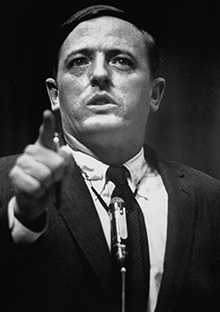
Just like Jonah Goldberg and Dan Crenshaw did at Texas A&M, Charlie at first started to argue against the alt-right arguments presented to him at the University of Florida. This is a very natural response. But then, at some point, he flicked a switch, and went into persuasion mode with them, much like I’ve seen him do with people on the Left. It was very creative.
For most of the night, they were booing many of his answers. But then, they started to cheer at some of his answers. And it wasn’t because he dived into their muck, but because he showed them a little light, trying to pull them out of their muck. It was masterful.
And these young people are in a bunch of muck. They see the rising costs of healthcare, housing, tuition, student loan debt, and stagnant middle class wages. Then they look and see affirmative action policies that appear to be giving minority groups a privileged status. In the era of intersectionality, the greater minority victimhood you can prove yourself to have, the more privileged status you have in the conversation, especially on college campuses. These lonely white males are now attempting to argue that they are the victims. Yet, I think they are only doing it because this is what they’ve been “taught” by a system that they see as rigged against them. They are confused by the examples presented to them through the identity politics they encounter, especially when they enter the college campus environment.
Kirk told them that white identity politics is “immoral and evil.” He told them that Leftists started the identity politics, which is also immoral and evil. But the answer to the Left isn’t more identity politics. The answer is to end identity politics altogether. They all cheered.
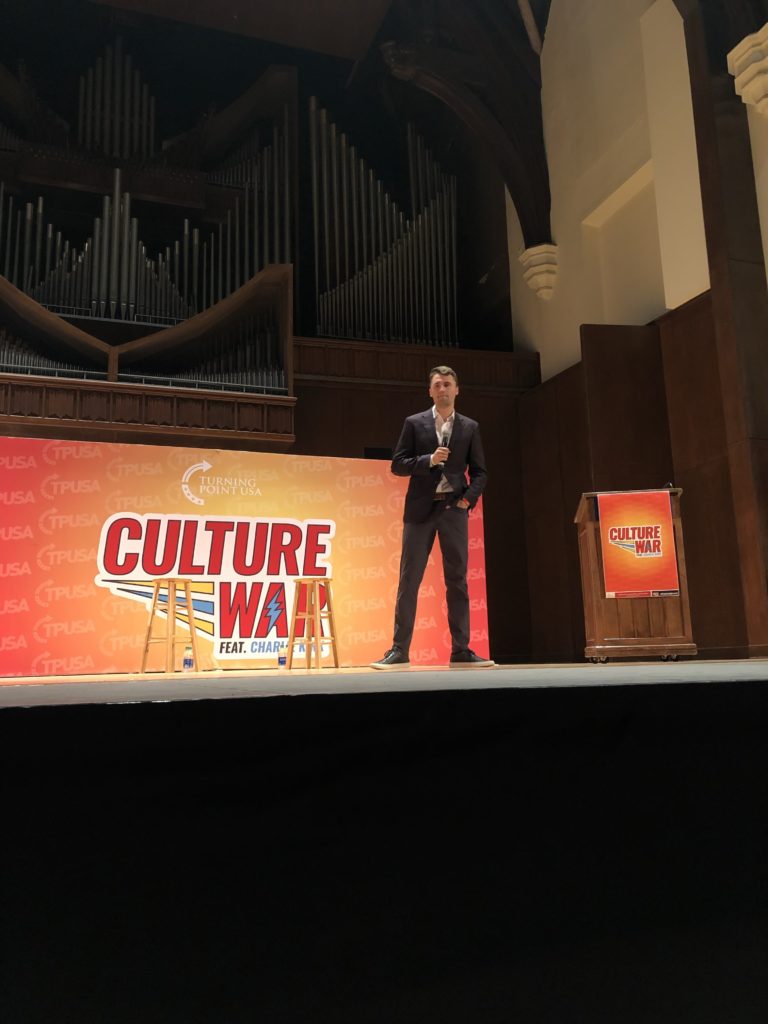
I couldn’t believe it. I looked around and saw some of the looks on their faces, like they were shocked that Charlie Kirk, their sworn enemy, said that. It gave me hope for these lost souls.
They didn’t agree with much more the rest of the evening, but in that moment, Charlie showed them a light. White nationalists like Richard Spencer and Nicholas Fuentes are fueling the anger by these young white males with darkness. In his event at the University of Florida, Charlie recognized that these are a bunch of young, often lonely, white males who are frustrated with what they see as anti-white male identity politics. Instead of the darkness that the alt-right internet trolls offer them, in some form of online community, Charlie instead offered them a light, a vision, a way out.
It’s not just a way out for them, it’s a way out for our country. We must end identity politics in all its forms. And, if and when it starts to emerge itself on the “right” (or the alt-right), we must squash it. We must draw that same line that Buckley drew against the John Birchers and we must tell those people they are not part of our movement, even if they are wearing a MAGA hat. And we must remind our friends on the Left: if you keep up your identity politics, you are opening a deep, dark hole that no one in our country should ever want to go back to.
